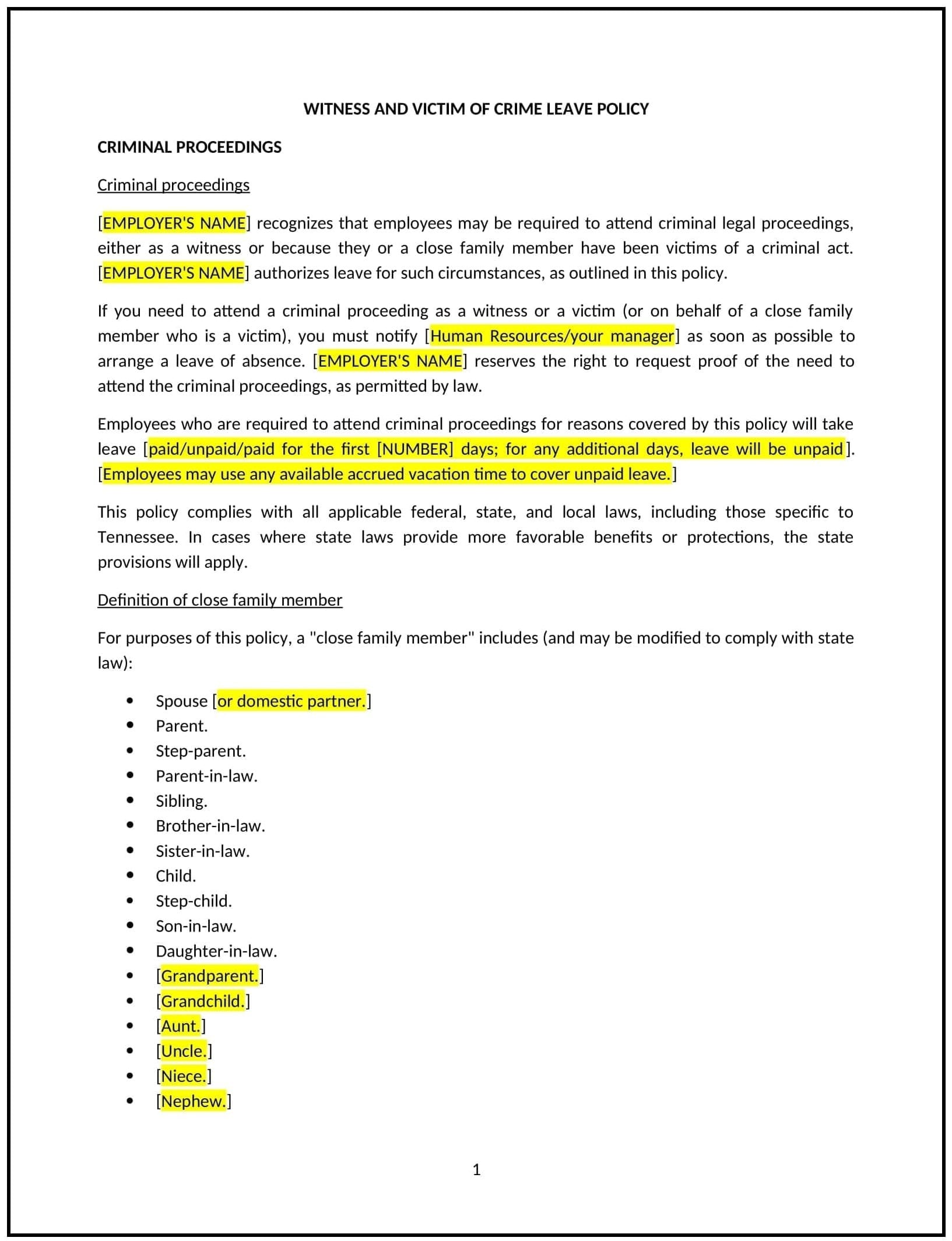Witness and victim of crime leave policy (Tennessee): Free template
Got contracts to review? While you're here for policies, let Cobrief make contract review effortless—start your free review now.

Customize this template for free
Witness and victim of crime leave policy (Tennessee)
This witness and victim of crime leave policy is designed to help Tennessee businesses support employees who are victims of or witnesses to a crime. It outlines procedures for requesting leave, job protection, and maintaining confidentiality.
By adopting this policy, businesses can demonstrate empathy, support employee well-being, and align with general best practices for leave management.
How to use this witness and victim of crime leave policy (Tennessee)
- Define eligibility: Specify which employees are eligible for leave, such as victims of crime or witnesses required to testify in court.
- Establish leave duration: Outline the maximum amount of leave allowed and whether it is paid or unpaid.
- Set request procedures: Provide steps for employees to request leave, including required documentation and notice.
- Ensure job protection: Guarantee that employees will return to the same or an equivalent position after leave.
- Maintain confidentiality: Protect the privacy of employees requesting leave and avoid disclosing sensitive information.
- Train managers: Educate supervisors on handling leave requests and maintaining workflow during employee absences.
- Review and update: Assess the policy annually to ensure it aligns with evolving business needs and employee expectations.
Benefits of using this witness and victim of crime leave policy (Tennessee)
This policy offers several advantages for Tennessee businesses:
- Supports employee well-being: Demonstrates a commitment to helping employees during difficult times.
- Builds trust: Shows employees that the business values their personal circumstances and contributions.
- Enhances retention: Encourages employee loyalty by providing support during challenging situations.
- Promotes productivity: Reduces stress for employees, allowing them to focus on their work when they return.
- Aligns with best practices: Offers a structured approach to managing leave for victims and witnesses of crime.
Tips for using this witness and victim of crime leave policy (Tennessee)
- Communicate the policy: Share the policy with employees and include it in the employee handbook.
- Provide training: Educate managers on handling leave requests and maintaining workflow during employee absences.
- Monitor compliance: Regularly review leave requests to ensure adherence to the policy.
- Address issues promptly: Take corrective action if leave requests are mishandled or denied improperly.
- Update regularly: Assess the policy annually to ensure it aligns with evolving business needs and employee expectations.